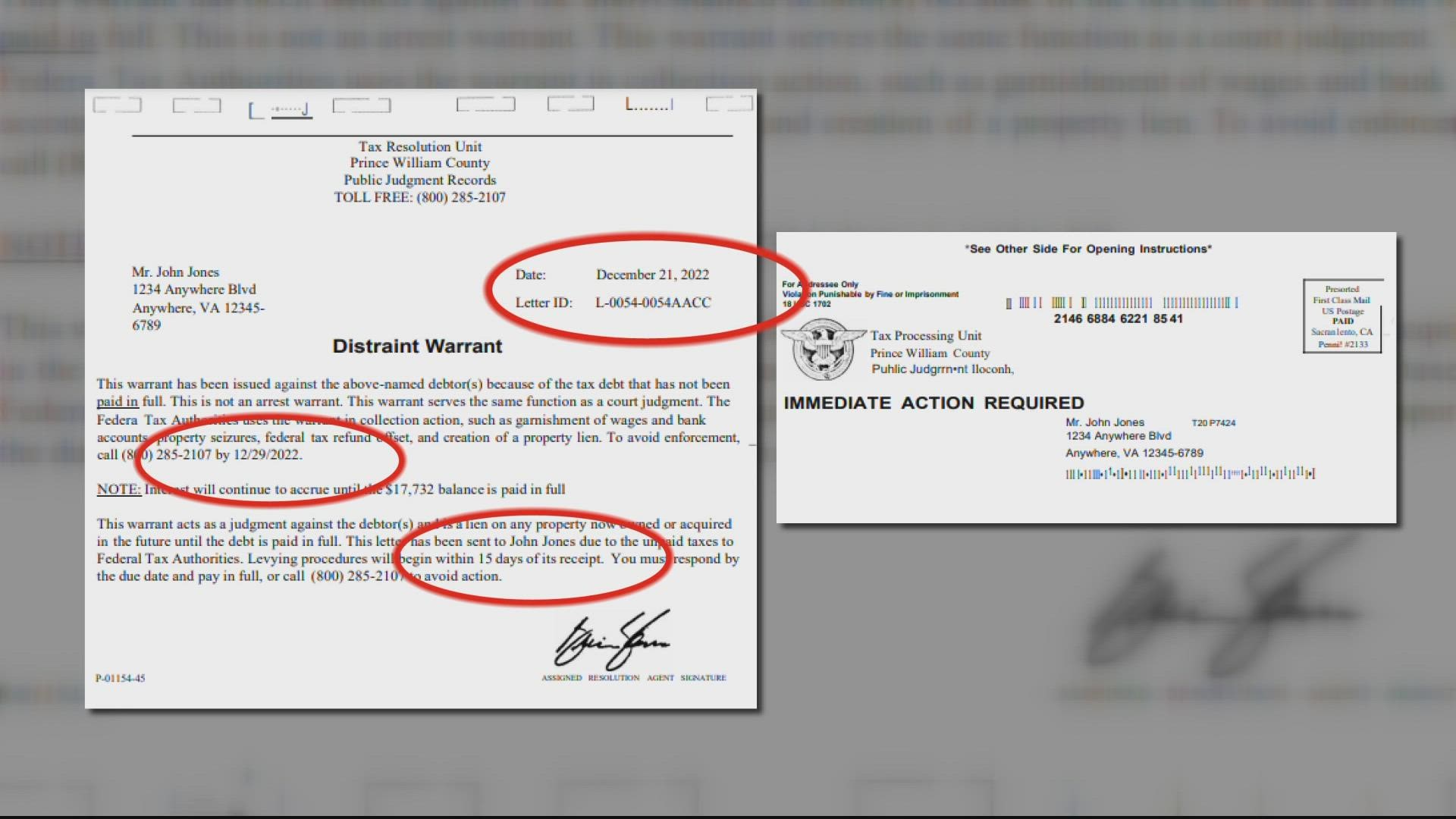PRINCE WILLIAM COUNTY, Va. — Officials with Prince William County are warning residents about a tax scam making its way across the county.
Citizens have reportedly been receiving a scam distraint warrant letter from the "Tax Processing Unit" for Prince William County. The letters claim that you owe money to the government.
“Prince William County Tax Administration would like to let anyone who receives this letter know we did not send it and to disregard it," the county said in a statement.
An example letter shared by Prince William County showcases a phone number unaffiliated with the county government. The “warrant” claims that tax debts that have been paid in full are due to the “Federal Tax Authorities” and threatens to levy procedures within 15 days of receiving the letter.
The letterhead appears official and threatens the recipient with the loss of their wages, bank accounts, federal tax refund offset, and property if they don’t resolve a fake tax debt.
Hunter Lenz, a postal inspector with USPIS, told WUSA9 the letter is a government look-a-like scam.
"That is when the scammers utilize mailings that purport themselves to be from a government agency, asking for money such as task scams," Lenz said.
He said to avoid falling victim to a scam like this, "watch out for misspellings, and immediate demands for money."
"Also, check that the phone numbers and websites that are listed do go back to the agencies that they represent themselves to be," Lenz said.
He pointed out some specific issues with the letter in Prince William County that are warning signs. He told WUSA9 the seal on the letter is not Prince William County's seal. The letter has several spelling errors, and it also has a 1-800 number listed. Lenz said that a local government wouldn't normally use a toll free number.
The letter also makes reference that it's for unpaid federal taxes. But Lenz said Prince William County wouldn't be reaching out for federal taxes, that would come from the IRS.
Finally, he says everyone should "read the fine print" if they get a letter you think is suspicious.
"Take a quick moment, don't feel pressured, do the research," he advised. "It's your money. You want to make sure it's going to the right place. Taking those extra moments to make sure they're legit that's going to save you a lot in the long run."
Officials ask anyone who has received this letter through the U.S. mail to contact Postal Inspection Service Office by calling 1-877-876-2455 or visiting the United States Postal Inspection Service's website to report the suspected fraud online.

